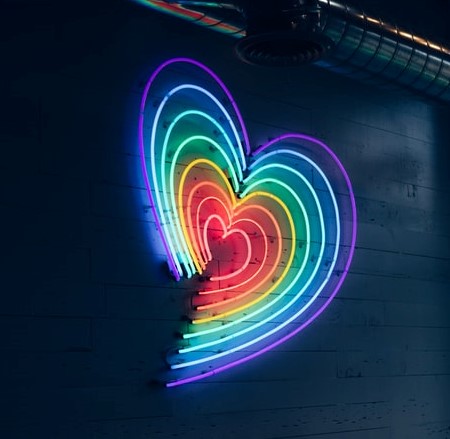
The Rev. Dr. Jacqui Lewis reflects on the universal wisdom that proclaims the mutuality of love:
No matter who we are or where we come from, no matter whom we love and how we earn a living, the admonition to love your neighbor as you love yourself, when lived out, expresses the interdependence humans need in order to survive and thrive. And the first step, the starting place, is self-love. In the Greek language, the phrases “love neighbor” and “love yourself” are connected by the word os, which is like an equal sign. This suggests we are called to love the self and the neighbor in exactly the same way. When we don’t love ourselves, it is impossible to love our neighbor. . ..
The connection between self-love and the love of others is as old as time. From the moment we stood up and walked out of lonely caves and into the light of tribal togetherness, humans understood the inextricable connection, that our lives are woven together in love. Almost all the world’s great religions encourage us to love our neighbor as ourselves. Sometimes called the Golden Rule, this beautiful teaching invites humans to treat one another—and in some traditions all creatures—the way we want to be treated. . . . The story embedded in these teachings across faiths and religions is: We belong to a mutually beneficial web of connection, well-being, and love. At the root of this connection is empathy; the result is kindness, compassion, respect, and understanding. When religion doesn’t center on this mutuality, it can become one of the toxic narratives that, in the end, dismantles self-love.
Lewis honors what she has learned about love from others:
I learned more about this connection among humans while visiting Robben Island, the South African prison where Nelson Mandela [1918–2013] was confined in a tiny cell for eighteen of the twenty-seven years he was behind bars. I found it miraculous that Mandela could see his inextricable connection to the humanity of his captors, the ones who took away his liberty and humiliated him daily. He observed that no one is born hating another because of race, religion, or background. Mandela understood that just as hate is taught, love must be taught.
For some folks, talk about love sounds weak, but from my point of view love is the strongest force on the planet. I learned my favorite definition of love from one of my seminary professors, the late Dr. James E. Loder [1931–2001]. He defined love as a “non-possessive delight in the particularity of the other.” All these years later, I am still so moved by this sentiment. Non-possessive delight sounds like devotion to me. Rather than trying to change, manipulate, or devour the object of our affection, fierce love delights in the particularities of who they are. So, when you love yourself, you take delight in the unique particularities that add up to you, without judgment.
Reference:
Jacqui Lewis, Fierce Love: A Bold Path to a Better Life and a Better World (New York: Harmony, 2021), 28, 30, 31–32
Source: https://cac.org/love-of-others-begins-with-love-of-self-2022-04-12/





